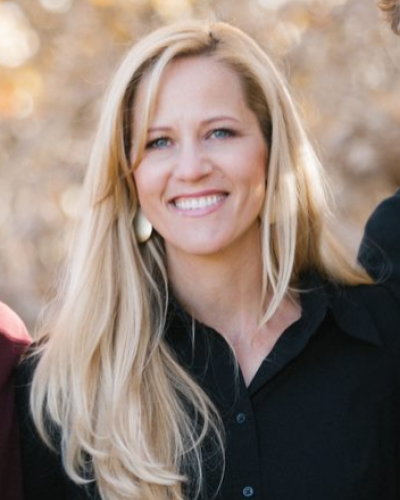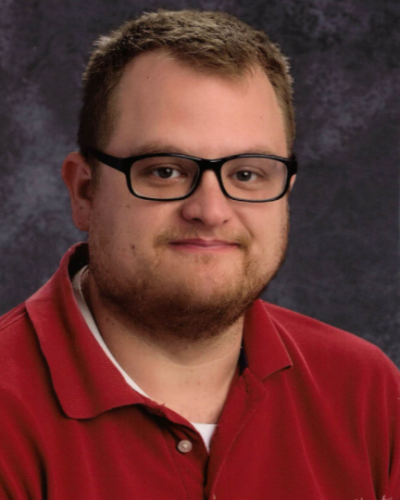It’s with great pleasure that we spotlight these two amazing teachers! Please join our podcast conversation as Chantelle and Ryan discuss the importance of civic education and engagement in rural areas.
Meet Chantelle and Ryan
My name is Chantelle Taylor. I teach in a small little town in northeastern Arizona called Holbrook. Our town borders the Navajo Reservation. I have taught 4th and 5th-grade general education for the last 9 years. I grew up not far from here and feel strongly about having excellent education available in rural areas.
I am blessed to be a part of the EAD task force and have been able to collaborate with teachers and learn from experts as we discuss how to bring well-rounded civic education to our students. Some of our goals are to ensure our students develop their own opinions, help them see themselves and others represented in our shared history, and enable them to take action with their own lives as they engage civically. I participated as a teacher-mentor to High School students as we attended the Civic Leadership Insitute summer experience at ASU hosted by the SCETL (School of Civil and Economic Thought and Leadership) master professors. I also was part of a similar opportunity geared toward teachers from all over Arizona as we met to build strong civic and educational lessons and pool resources together. All these experiences have reinvigorated my love of teaching social studies, history, and civics in general and enabled me to increase my capability and access to resources. Newly developed skills to add to my pedagogy. I would encourage any teacher to attend and participate in these opportunities as they arise again. You will not regret it!
"It is not the critic who counts; not the man who points out how the strong man stumbles, or where the doer of deeds could have done them better. The credit belongs to the man who is actually in the arena, whose face is marred by dust and sweat and blood; who strives valiantly; who errs, who comes short again and again, because there is no effort without error and shortcoming; but who does actually strive to do the deeds; who knows great enthusiasms, the great devotions; who spends himself in a worthy cause; who at the best knows in the end the triumph of high achievement, and who at the worst, if he fails, at least fails while daring greatly, so that his place shall never be with those cold and timid souls who neither know victory nor defeat."
-President Theodore Roosevelt
May we all be vulnerable enough, brave enough, to show up and dare greatly as we try to do good things in this life.
I was born and raised in a small farming community in the southwest corner of New Mexico known as Animas. This experience taught me what it means to be a part of a rural community and to understand their needs. I received my education degrees from Eastern Arizona College, Northern Arizona University, and Grand Canyon University, where I earned my master of Education with a minor in History. The first six years of teaching experience were when I taught 7th/8th grade Social Studies at Wade Carpenter Middle School in Nogales, Arizona. I was honored to receive the Jackie Scott Ambassador of Excellence Award, the district’s most prestigious award. As my circumstances changed, I decided to move to a rural community like the one I grew up in, Saint Johns, Arizona. I taught US/AZ History, World History, and Spanish three years at Saint John’s High School. Here I learned what impact education has on small rural community schools. I currently teach at American leadership Academy- Virtual Campus. I teach US/AZ History and 7th/8th Grade Social Studies to students from all over Arizona. These students come from metropolitan areas as well as small towns across Arizona.
My experience with the Center of Political Thought and Leadership at ASU has been unique. Since I started my training teaching at Saint John’s High School, I have had a different perspective being in an in-person classroom to what I currently teach in a Virtual Classroom. I have seen the difference between the students I serve in all of Arizona and those here in Saint John. Students in a physical classroom learn differently than those in a virtual one. Despite the learning styles of each of these campuses, The Center of Political thought and Leadership has given me the tools to teach the importance of Civics to all Arizona students. They trained multiple teachers across Arizona to help students develop their own opinions based on facts and primary sources rather than opinions based on incomplete evidence. They showed us how to help students spot bias and view an event from different perspectives. This has allowed me to teach rural and urban students to develop higher-order thinking skills, like analyzing and critically thinking.
One of my favorite people in US History is one of the Founding Fathers, John Adams. His writings have always inspired me as well as helped me shape my teaching style to base things on facts, which leads me to my favorite quote
"Facts are stubborn things; and whatever may be our wishes, our inclinations, or the dictates of our passion, they cannot alter the state of facts and evidence."
-President John Adams
In both the physical and virtue campuses I have taught during my experience with the Center of Political thought and Leadership, I have learned that students want to express their opinions freely. However, many students often feel that their idea may be wrong or incomplete or that their peers will reject them. This often prevents students from fully participating in Social Studies education. The EAD experience has taught me how to reach out to those students and give them confidence in expressing these opinions based on facts and evidence. One example we learned is for the teachers to create situations in the classroom where students can feel safe in expressing their views. I tried this out by putting students into small groups, so they do not feel uncomfortable being put on the spot in front of everyone in the classroom. Then in these small groups, I had the students analyze and draw evidence from primary sources. In this example, I had them look at different perspectives on a historical event, The New Deal. Here I provided two primary source documents from people that were in favor and against The New Deal. Through a series of questions we received in our EAD training, the students gained knowledge from both perspectives of the New Deal. Students in their groups sided with one side based on what they analyzed. Students in the same groups had varying perspectives, which also taught them that they could have differences of thought but still respect each other’s opinions. This also led to many debates in the classroom where students could take a side and civilly debate different perspectives amongst their peers. What a difference this made, especially in the dividing political climate that we face today in our society from both sides of the political establishment. I am grateful to have had the EAD roadmap and tools in my classroom. I have recently applied these same principles and tools in the virtual setting. Through discussion posts and breakout rooms in the virtual world, I have learned that students can learn Civics despite of where they are located and whether they are in an urban school, rural school, or virtual campus.

